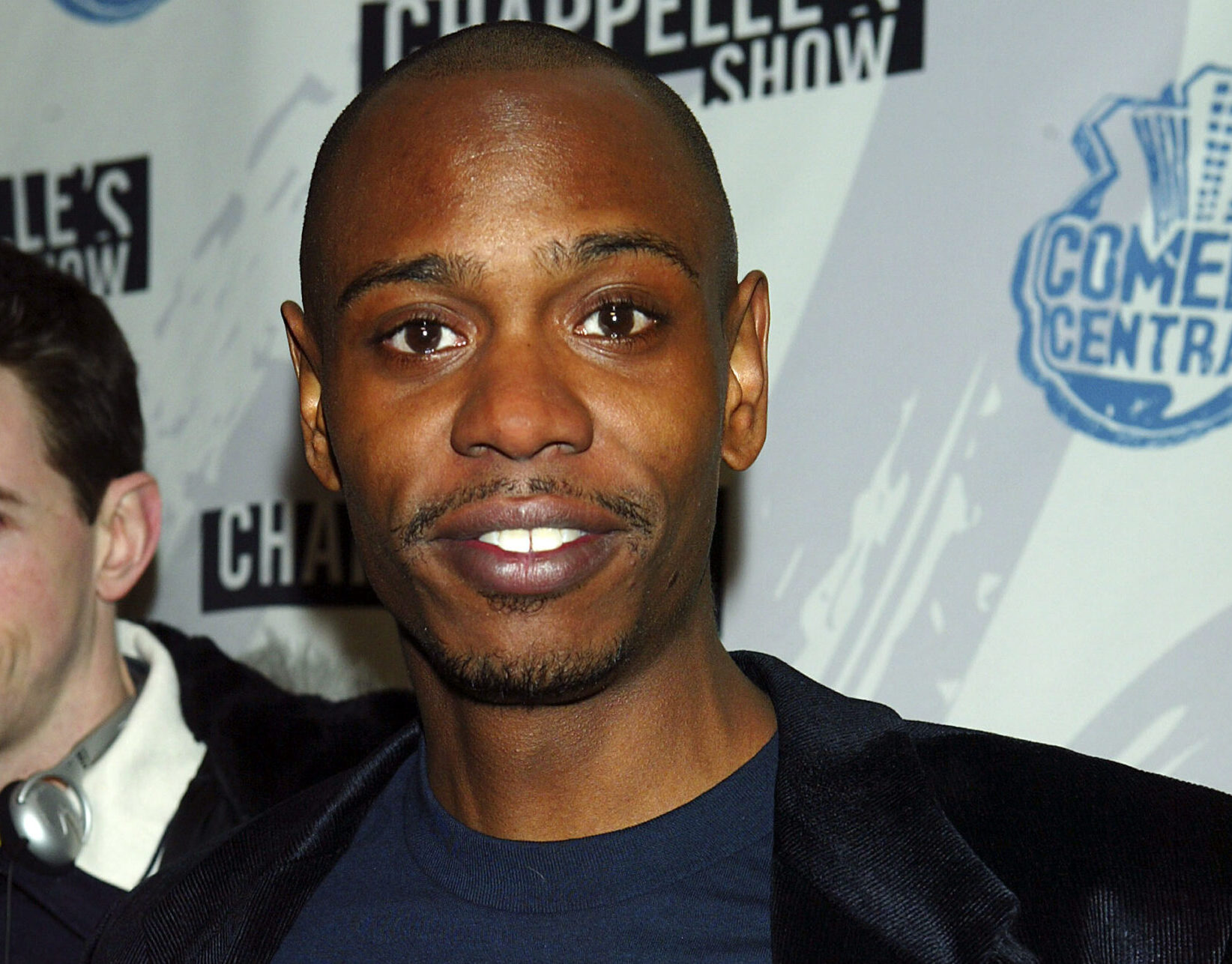Dave Chappelle | Bio | Highlights | Controversies
Dave Chappelle has become a household name in comedy, known for his fearless approach to social commentary and race. What makes him so unique?
Author:Suleman ShahReviewer:Han JuOct 31, 202425.8K Shares537.6K Views

Dave Chappelle, born on August 24, 1973, in Washington, D.C., is more than just a comedian; he is a cultural phenomenon who has profoundly influenced the landscape of American comedy and social commentary.
Known for his incisive wit, fearless commentary on race and society, and groundbreaking television work, Chappelle’s contributions extend far beyond mere entertainment.
This article delves into his life, career, and lasting impact, exploring the many facets that make him one of the most celebrated comedians of our time.
Early Life And Background
Family Background
David Khari Webber Chappelle was born into a family deeply entrenched in education and activism. His father, William David Chappelle III, served as a professor and the dean of students at Antioch College in Ohio, while his mother, Yvonne Reed, was a Unitarian Universalist minister and an educator at several universities, including Howard University.
Education
Chappelle grew up in Silver Spring, Maryland, and spent significant time in Yellow Springs, Ohio. He attended the prestigious Duke Ellington School of the Arts in Washington, D.C., where he studied theater arts.
It was here that he began performing stand-up comedy at the young age of 14, honing his craft in nightclubs around the city.
Childhood Experiences
Chappelle’s upbringing was marked by the influence of his parents' political engagement and cultural discussions.
He was inspired by various figures in the comedy world, including Richard Pryor and Eddie Murphy, who would later become pivotal influences in his own work.
Rise To Fame
Early Career
After graduating from the Duke Ellington School of the Arts in 1991, Chappelle moved to New York City to pursue comedy full-time
His initial performances included open mic nights at various clubs, where he quickly garnered attention for his raw talent and unique perspective.
Breakthrough Roles
Chappelle's film debut came in 1993 with Robin Hood: Men in Tights, where he showcased his comedic chops.
He later starred in the short-lived sitcom Buddies(1996)and played supporting roles in films like The Nutty Professor(1996) and Con Air(1997).
However, it was the release of Half Bakedin 1998, which he co-wrote with Neal Brennan, that marked a turning point in his career.
Chappelle’s Show
In 2003, Chappelle launched Chappelle’s Showon Comedy Central, co-creating the series with Brennan. The show featured sketches that parodied various aspects of American culture, particularly racial stereotypes and social issues.
It quickly became a cultural touchstone, known for its sharp satire and memorable sketches, such as the infamous "Charlie Murphy's True Hollywood Stories" featuring Rick James.
| Year | Show/Film & Role/Contribution |
| 1993 | Robin Hood: Men in Tights - Debut film role |
| 1996 | Buddies - Lead role in a sitcom |
| 1998 | Half Baked - Co-writer and lead actor |
| 2003 | Chappelle’s Show - Co-creator and star |
Comedy Style And Themes
Chappelle's comedic style is characterized by a blend of observational humor, social commentary, and surrealism. He has a unique ability to tackle complex and sensitive topics, including race relations, politics, and social justice, using humor to provoke thought and discussion.
His delivery often incorporates a playful sense of absurdity, allowing him to navigate challenging subjects without alienating his audience.
Key Themes in Chappelle’s Comedy:
- Race and Identity:Explores racial dynamics and stereotypes.
- Politics:Offers incisive critiques of American political culture.
- Social Justice:Addresses issues of inequality and activism.
Notable Stand-Up Routines
- “Killing Them Softly”: Focuses on race and everyday life.
- “Equanimity”: Tackles current political climates and social issues.
Cultural Impact
The cultural impact of Chappelle’s work cannot be overstated. His sketches and stand-up routines have sparked conversations around race and identity, pushing boundaries and challenging societal norms. Chappelle’s Showremains influential, often referenced in discussions about race and representation in media.
Statistics On Chappelle's Impact:
- Viewership: Chappelle's Showwas among the most-watched programs on Comedy Central during its airing.
- Cultural References: The "Rick James" sketch became a viral sensation, embedding phrases like "I'm Rick James, bitch!" in popular culture.
Controversies And Criticism
Chappelle's career has not been without its controversies. In 2005, during the production of Chappelle’s Show, he abruptly left the series, citing the pressures of fame and concerns about the show's direction. This decision led to rampant speculation about his mental healthand personal struggles, overshadowing his artistic choices.
Recent Controversies
His recent Netflix specials, particularly The Closer, have reignited debates about his approach to humor regarding the LGBTQ+ community.
Critics have accused him of promoting harmful stereotypes, while Chappelle defends his right to address these topics through comedy.
Recent Work And Continued Impact
Since his return, Chappelle has continued to produce successful comedy specials for Netflix, including The Age of Spinand Sticks & Stones, both of which have garnered critical acclaim and commercial success.
His recent specials address contemporary issues, including the COVID-19 pandemic and social justice movements.
Recent Netflix Specials:
- The Age of Spin(2017)
- Deep in the Heart of Texas(2017)
- Sticks & Stones(2019)
- The Closer(2021)
Critical Reception:
Chappelle's work has often garnered mixed reviews, particularly regarding his commentary on sensitive topics. However, he remains a relevant voice in the comedy scene, continuing to draw large audiences.
Highlights From Chappelle’s Show

The Best of Tyrone Biggums - Chappelle’s Show
Awards And Accolades
Chappelle's accolades are a testament to his talent and influence. He has received numerous awards, including:
| Award and Year | Description |
| Emmy Awards (2017) | Outstanding Guest Actor in a Comedy Series |
| Grammy Awards (2018) | Best Comedy Album for The Age of Spin |
| Mark Twain Prize (2019) | Recognizing significant contributions to humor |
Activism And Advocacy
Beyond comedy, Chappelle is known for his philanthropic efforts and political activism. He has supported various causes, including education and social justice initiatives. His commitment to his community is evident through his continued support of the Duke Ellington School of the Arts and other local organizations.
Personal Life
Chappelle married Elaine Mendoza Erfe in 2001, and they have three children together. The family resides on a farm in Yellow Springs, Ohio, where Chappelle remains connected to his roots. His personal beliefs, including his conversion to Islam, inform his work and perspective on social issues.
Chappelle's Legacy
As a comedian, Chappelle has redefined the role of humor in cultural discourse. His fearless approach to addressing taboo topics has inspired a new generation of comedians and sparked important conversations about race, identity, and social justice.
Looking ahead, Chappelle’s influence on comedy and culture will likely continue to evolve.
Notable Quotes And Testimonials
Chappelle’s perspectives on comedy and society are often captured in his quotes, such as:
- "I still think people do have racial hang-ups, but I think one of the reasons I can joke about it is people are shedding those racial hatreds."
- "You can become famous but you can't become unfamous."
These insights reflect his understanding of the complexities of race and identity in America.
FAQs About Dave Chappelle
What Are Some Of Dave Chappelle's Most Famous Quotes?
Chappelle's sharp wit is reflected in many memorable quotes that often challenge societal norms and provoke thought.
How Has Chappelle Influenced Modern Comedy?
Chappelle's approach to addressing sensitive topics with humor has paved the way for comedians to explore complex issues in their work.
What Awards Has He Won?
Chappelle has won multiple Emmy and Grammy Awards, including the prestigious Mark Twain Prize for American Humor.
Conclusion
Dave Chappelle's journey from a young comedian in Washington, D.C., to a cultural icon is a testament to his talent and impact. His work not only entertains but also challenges societal norms, encouraging audiences to reflect on complex issues.
As he continues to evolve as an artist, Chappelle's legacy in comedy and cultural discourse remains indelible.
Jump to
Early Life And Background
Rise To Fame
Comedy Style And Themes
Cultural Impact
Controversies And Criticism
Recent Work And Continued Impact
Highlights From Chappelle’s Show
Awards And Accolades
Activism And Advocacy
Personal Life
Chappelle's Legacy
Notable Quotes And Testimonials
FAQs About Dave Chappelle
Conclusion

Suleman Shah
Author
Suleman Shah is a researcher and freelance writer. As a researcher, he has worked with MNS University of Agriculture, Multan (Pakistan) and Texas A & M University (USA). He regularly writes science articles and blogs for science news website immersse.com and open access publishers OA Publishing London and Scientific Times. He loves to keep himself updated on scientific developments and convert these developments into everyday language to update the readers about the developments in the scientific era. His primary research focus is Plant sciences, and he contributed to this field by publishing his research in scientific journals and presenting his work at many Conferences.
Shah graduated from the University of Agriculture Faisalabad (Pakistan) and started his professional carrier with Jaffer Agro Services and later with the Agriculture Department of the Government of Pakistan. His research interest compelled and attracted him to proceed with his carrier in Plant sciences research. So, he started his Ph.D. in Soil Science at MNS University of Agriculture Multan (Pakistan). Later, he started working as a visiting scholar with Texas A&M University (USA).
Shah’s experience with big Open Excess publishers like Springers, Frontiers, MDPI, etc., testified to his belief in Open Access as a barrier-removing mechanism between researchers and the readers of their research. Shah believes that Open Access is revolutionizing the publication process and benefitting research in all fields.

Han Ju
Reviewer
Hello! I'm Han Ju, the heart behind World Wide Journals. My life is a unique tapestry woven from the threads of news, spirituality, and science, enriched by melodies from my guitar. Raised amidst tales of the ancient and the arcane, I developed a keen eye for the stories that truly matter. Through my work, I seek to bridge the seen with the unseen, marrying the rigor of science with the depth of spirituality.
Each article at World Wide Journals is a piece of this ongoing quest, blending analysis with personal reflection. Whether exploring quantum frontiers or strumming chords under the stars, my aim is to inspire and provoke thought, inviting you into a world where every discovery is a note in the grand symphony of existence.
Welcome aboard this journey of insight and exploration, where curiosity leads and music guides.
Latest Articles
Popular Articles



